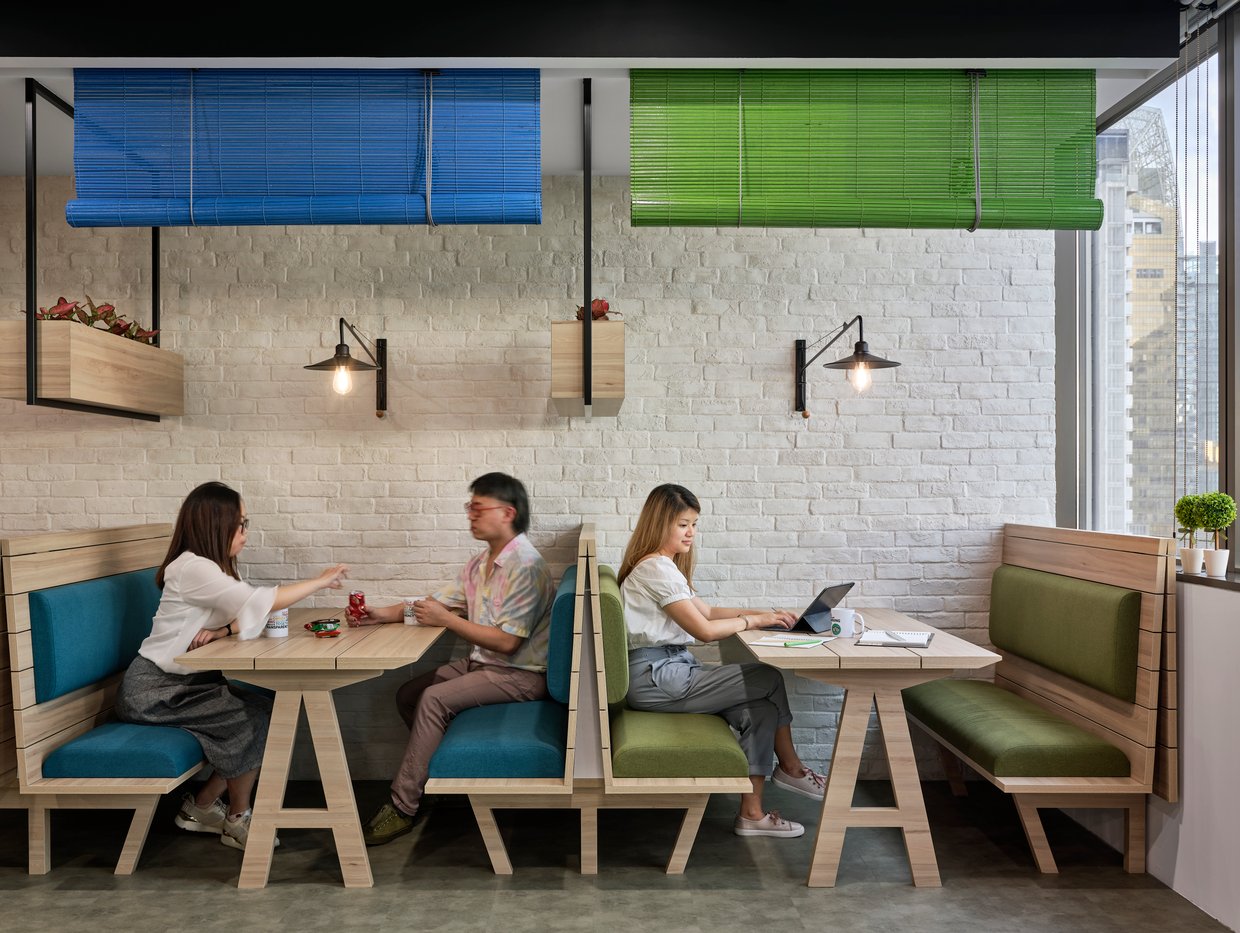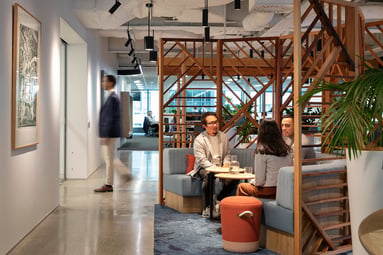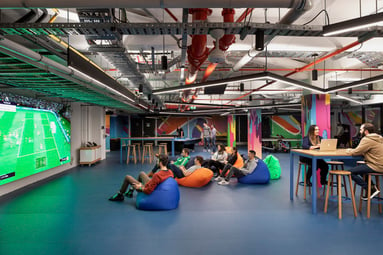Future-Proofing the Workplace for Gen Z: A Blueprint for the Next Generation l Jianhan Qiu Speaks to CoreNet Global

The workplace is evolving rapidly, and at the heart of this transformation are Gen Zs. Gen Z comprises 25% of the world's population today and by 2030, they will make up 30% of the global workforce. Jianhan Qiu, Principal, Strategy at Unispace Asia, speaks to CoreNet Global about the key insights in our latest global workplace insights report, From Restrictions to Resilience.
As digital natives who prioritize well-being, flexibility and purpose, they bring new expectations to the table. Organizations that want to attract and retain this workforce must rethink workplace design, integrating spaces that foster collaboration, personal well-being and professional growth.
Understanding Gen Z’s Workplace Needs
According to Unispace’s Global Workplace Insights 2024-2025, Gen Z (18-27 years old) faces greater challenges in maintaining well-being at work compared to older generations. The data reveals:
- 35% of Gen Zs struggle to stay active during the workday, versus only 20% of those aged 55+.
- 33% of Gen Zs cite a lack of space to rest, recharge and de-stress, compared to just 21% of those aged 55+.
These insights highlight the urgent need for workplaces to evolve, ensuring they meet the demands of a workforce that prioritizes both physical and mental well-being.
Designing for a Well-being-Driven Generation
Gen Zs are redefining what workplace wellness looks like. Beyond ergonomic furniture, they expect environments that actively support their health and productivity throughout the day.
Rest & Recharge Spaces
The demand for areas that provide mental and physical respite is growing. Our recently completed project, Carl Zeiss, Bangkok serves as a prime example of how companies can integrate these elements effectively. Driven by ZEISS’s expansion in Thailand, the workplace design prioritizes a collaborative and welcoming environment, with private focus pods, social zones and a gaming area. These features foster relaxation and team bonding, ultimately enhancing workplace morale and productivity.
Active Workspaces
With one-third of Gen Z struggling to stay active, organizations must rethink how office environments encourage movement. From focus areas to standing meeting spaces, the key is to incorporate activity into the workday without disrupting productivity. Takeda, Vietnam embraces this approach through its hybrid workplace concept, which features dedicated collaboration neighborhoods and team clusters, ensuring employees have varied spaces to move between throughout the day.

The Future Workplace: More Than Just a Desk
As organizations prepare for the future, they must go beyond traditional office layouts and embrace a new approach centered around Gen Z’s key workplace priorities:
- Flexibility & Hybrid Work Models
- Gen Z thrives in fluid work environments that balance remote flexibility with in-person collaboration.
- Spaces should be designed with modular layouts that can adapt to shifting team needs.
- Technology-Enabled Personalization
- Smart office tools can customize work environments, allowing employees to adjust lighting, temperature, and seating based on their preferences.
- AI-driven workplace analytics help optimize space utilization, ensuring offices remain efficient and engaging.
- Community & Social Connectivity
- The office must serve as a hub for connection rather than just a place to work.
- Incorporating social zones, creative collaboration areas, and wellness-focused spaces enhances engagement and retention.
The Competitive Edge: Investing in Future-Proof Workplaces
The workplace of tomorrow is being shaped today, and organizations that act now will gain a competitive advantage in attracting and retaining Gen Z talent. By incorporating well-being-driven design, flexible workspaces and technology-led personalization, businesses can create environments that not only support productivity but also foster innovation and long-term engagement.
As the workforce continues to evolve, one thing is clear—the future workplace isn’t just about where people work; it’s about how they experience work. Companies that recognize and adapt to this shift will be the ones leading the way forward.

About Jianhan Qiu, Principal, Strategy, Unispace Asia

Jianhan serves as the Principal for Strategy in Asia, where he leads the strategy and change management practice. He has developed innovative strategy and change management solutions that have helped many organisations align their work environment with their goals. As a certified LUMA practitioner, Jianhan is always embedding human certified design thinking into his solutions which contributed to his success as a seasoned workplace strategist.
Follow Jianhan Qiu on LinkedIn.






